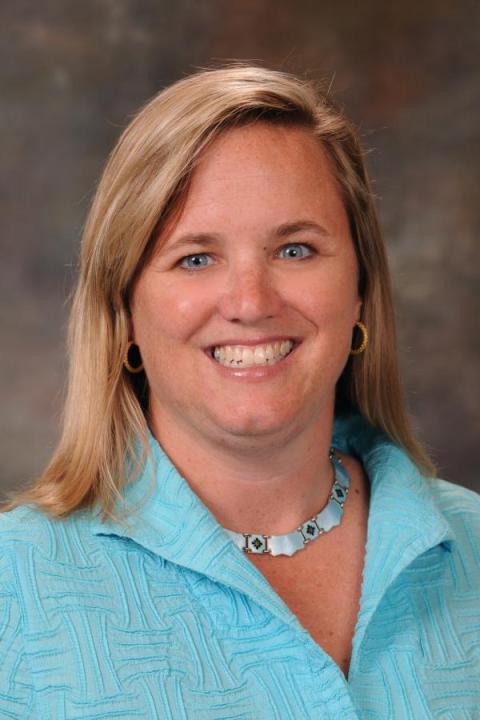
Patricia (Trish) Cox radiates passion when speaking about her career in social work, painting a clear picture of deep commitment and strong values.
After college Cox accepted a job in the pediatric cancer ward at the Memorial Sloan-Kettering Cancer Center in New York City. Witnessing first-hand the high level of care given by hospital social workers and the benefits to families during serious medical treatments sparked a life-long interest in social work.
A certified Child Life Specialist, Cox explains the importance of having properly trained staff by the example of a child facing a difficult or frightening medical procedure. The therapist might use a doll to demonstrate a pending medical procedure and cultivate coping skills for the child. They also help the family navigate through a stressful situation in unfamiliar surroundings.
Armed with a BA in Psychology from Trinity College in Connecticut and an MS in Early Education from Bank Street College in New York, Cox moved to New Hampshire to work in the Portsmouth School system as a Special Education Coordinator. She quickly fell in love with the Seacoast area and embedded herself in its community.
Invited to teach at UNH as an adjunct professor in 2007, Trish was inspired by the faculty to complete her educational repertoire with a master’s degree in social work at the university.
Driven to action, Cox has served with multiple organizations on a local, state, and national level, including the New Hampshire-based Richie MacFarland Organization which supports children with special needs, The Child Life Council in New York, and the National Association of Social Workers.
A former President of the New Hampshire Chapter of NASW, Professor Cox is the first UNH faculty to have served on the Board of Directors at a national level. She recalls a pinnacle moment during a conference in Washington DC.
“I was sitting at the table with famous advocates and activists who have fought and marched for the rights of vulnerable people. That was the proudest moment of my career.”
The common thread in Patricia’s professional life is promoting partnerships between school and parents, government and citizens, hospital and patients. She believes this building process fosters a sense of community, which in turn nurtures cooperation and mutual support.
“People must move past egos and personal agendas to focus on strategies that will improve life for those facing stressful challenges.”
Professor Cox eagerly embraced the online Master of Social Work (MSW) program as a faculty member in 2014. With degrees in multiple disciplines, Trish offers a unique skill set to her students and is buoyed by the creative energy exchange within the university community.
“Working professionals don’t always have the luxury of commuting to campus so they need programs that allow them to study from home. My goal is to provide them with the option of achieving that education through access to online learning.”
Cox is committed to creating an online community and advises students who struggle to find their work-home-study balance that the best way to stay afloat is to stay in touch. “Don’t be a turtle!” she counsels, encouraging them to reach out, stay connected, and build an “army of support”.
To foster the concept of shared governance, Social Work faculty meet regularly with each online student cohort to discuss questions, strategic issues, and ideas. Mindful of all professional techniques of good communication and partnership, Trish likes to remind participants that kindness underlies the best response to stressful circumstances, a value that every excellent social worker cherishes in the workplace.
She talks with enthusiasm about the program’s international study course in Ireland where MSW students to learn comparative approaches to common problems such as substance abuse, homelessness, and child welfare. This broadening experience develops critical methods for evaluating the impact of social systems on individuals, a significant skill for social workers who occupy policy-making roles that span health care, elder needs, child welfare, substance abuse, homelessness, school systems, justice systems, and employee assistance programs.
“Family centered care is an important concept in social work,” says Cox. “We advocate for families as they deal with unfamiliar institutions and their processes, scaffolding them to the next level of learning how to manage life stressors.”
Cox points out that the pandemic has created a “tsunami” of social needs, resulting in the acceleration of telehealth, and foresees a shift in the relationship between social workers and their clients as many clinical offices close. Although face-to-face communication remains an important part of care, remote contact provides a positive avenue of access, especially for those in rural areas. “Telehealth is here to stay.”
Recognizing that social work is drawing record numbers of interested young people, Cox believes that social media contributes to a broader, more immediate understanding of increasing societal pressures. She quotes a colleague whose sentiments reflect her own: “At no time in my life have I felt that social work is more important than it is right now.”
Compassion is the underpinning of Trish’s strength and commitment to those struggling to navigate their way through tough times. “I try to make hard days a little brighter”.
To anyone in need of a helping hand, those words are a bright star on a dark road.
- Gwendolyn Goguelet